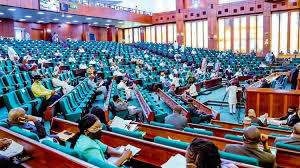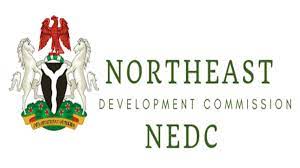Chief Olabode Afolayan, is the President of Real Estate Developers Association of Nigeria (REDAN), the umbrella body of housing developers in Nigeria. In this interview with FRANCIS ADINOYI KADIRI, the accomplished real estate developer says funding is major problem which the Nigerian Mortgage Refinance Company is likely to face despite the huge allocations to it.
Are the banks in Nigeria receptive in terms of loans, and how is the double digit interest rate affecting your business?
In Nigeria generally, the cost of capital is a little bit high and you will notice that outside the reforms going on of recent, it has always been difficult getting fund to develop houses. Funds for the real estate must come from the long term funding mechanism but where we don’t have access to long term funds; we use short term funds for long term projects. As long as that continues to exist, we might not be able to do much in terms of closing the housing deficit gap in Nigeria.
Capital is very fundamental to the provision of housing and if that is not readily available, or the loan terms are unfavorable, the rate of housing provision will be slow.
There are efforts going on by the coordinating minister of the economy, efforts that will obviously enable market forces to react positively to demand and growth in the sector and we want to thank the government for that.
Are you referring to the newly launched Nigeria Mortgage Refinancing Company?
Not necessarily the NMRC, even though the NMRC is a key thing because we are beginning to have enhanced demand. With it, unlike there was in the past where housing needs were not being specified, we are now building in line with the demand of the people which will bring down cost because it means as soon as you make your product available at the point of sale, the market is almost ready to absorb it.
It can begin to evolve the working capital and you might not need to go borrowing but if you must, you can easily come up with good repayment programmes and if we continue like this, in short time, things will begin to really take shape.
You talked about current initiatives of government. Can you highlight some of the steps that you feel are in the right direction to improve real estate in Nigeria?
The first one is basically the NMRC. It is a welcome idea provided other major stakeholders will play along in keeping with bringing the product to the market. As long as houses will be available and the primary mortgage bank will be creating the mortgages for the NMRC to finance the project, we will not have too much demand higher than supply.
Secondly, government is also working seriously on land reforms even though it has been difficult but what I have discovered is that the present administration is addressing the issue of land acquisition and the entire process of titling which has over time being a source of problem to developers.
The present administration decided to address it using an informal relationship. I could see a couple of times President Goodluck Jonathan encouraged the governors and they equally have been doing very well. If you go to more than 80% of the states of the federation, they have their land internal registry being constituted to simplify and reduce time for land processing. Apart from that, we now have states governors coming out with mass housing schemes or something close that will enable affordable housing to have a place in their states.
In Osun for instance, their ownprogramme is you don’t pay for land. If you want to develop estate they expect that the money that you may keep from the cost of land can be invested in development of infrastructure and at the end of the day they share the profit. This is a model that the Federal Ministry of Lands, Housing and Urban Development advocated long time ago and it is working and states are now beginning to follow the trend.
This is a good development for the housing sector and I am convinced in no time, Nigerians would begin to reap be dividends.
Some people are of the view that the funds available to the Federal Mortgage Bank of Nigeria(FMBN) is grossly inadequate to provide the needed mortgage and there fore proposing for an upscale of N500bn capital base.
What is your take on this? If you consider the huge success the FMBN has recorded overtime with the N5bn capital base, you would agree with me that they would achieve more giving more capital backing.That means if we want to be sincere with ourselves with the quantum of the activities going on in that organisation, then it is encouraging for us to invest more money into it. Output is the function of input.
In my own view, they need to be recapitalized .Secondly, government needs to give them the needed political will, and government must enforce the National Housing Scheme Act that will compel everybody to contribute to increase the bank ‘s financial base. It is gratifying to note that the bank is already making efforts on its own to expand its frontiers of funding.
The management of the bank has been looking inward to fashion out strategies that will reposition the bank as the most reliable secondary mortgage institution in Nigeria. All that government need do is to complement the bank’s efforts.
Recently, the Minister of Lands,Housing and Urban Development MrsEkonEyakenyi set up three committees on specific areas in the sector.
Do you believe that the federal government has the needed political will to implement the findings of the committees?
First of all, we need to commend the minister for doing just that; it is for me and hopefully for all our members, a welcome development. This is an opportunity for major stakeholders in the real estate sector to move from speculative investment to a target oriented investment because we will have data to work with.
The data that will be gotten from the committee on housing deficit, for instance, would give us an idea of what is on ground and the expected ground to cover. As part of our efforts to complement the efforts of the committee on housing deficit, REDAN has directed its over 2000 developers across the country to within the shortest period time, provide us with data of what they have done in the past and what they are still doing, so that we can make all these things available to the federal government.
The world is just getting out of meltdown which paralysed economic activities with serious negative effect on real estate development sector.
As the umbrella of builders in the country, how did it affect you activities?
The world economy is just coming out of challenges and it is obvious that when such things happens, every sector will have to, in one way or the other, seeks a way out. But it is a different ball game in the real estate sector because of its capital intensive nature. However, we have been doing everything humanly possible to come along with the reality of the situation.
That is looking at the needs of the people, their needs and marrying it with the possible way in which we can deliver them in the most affordable way.



